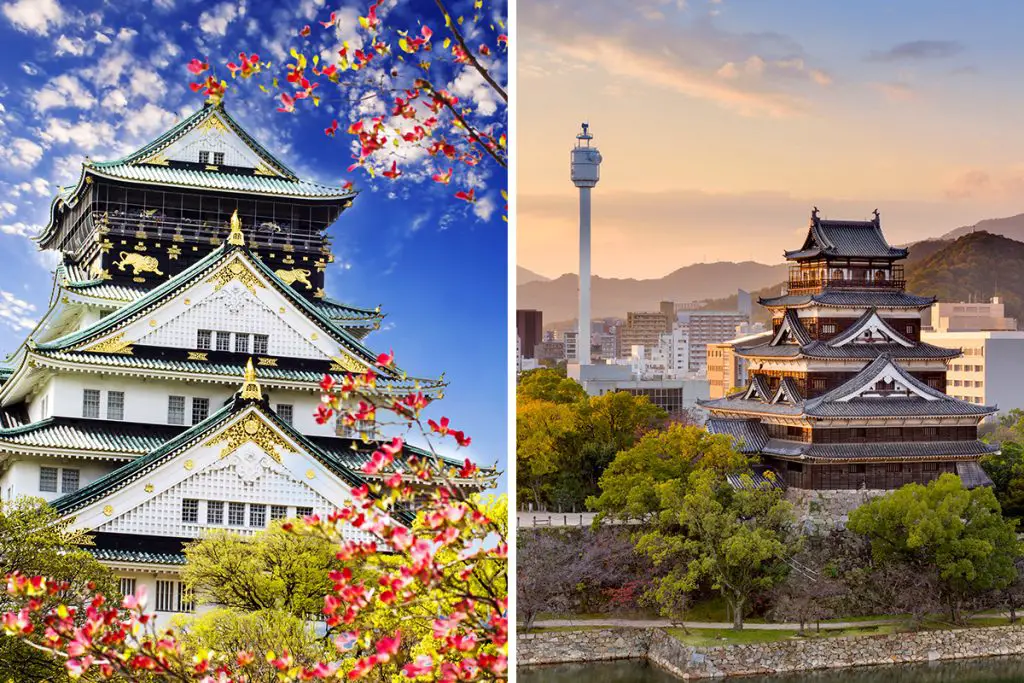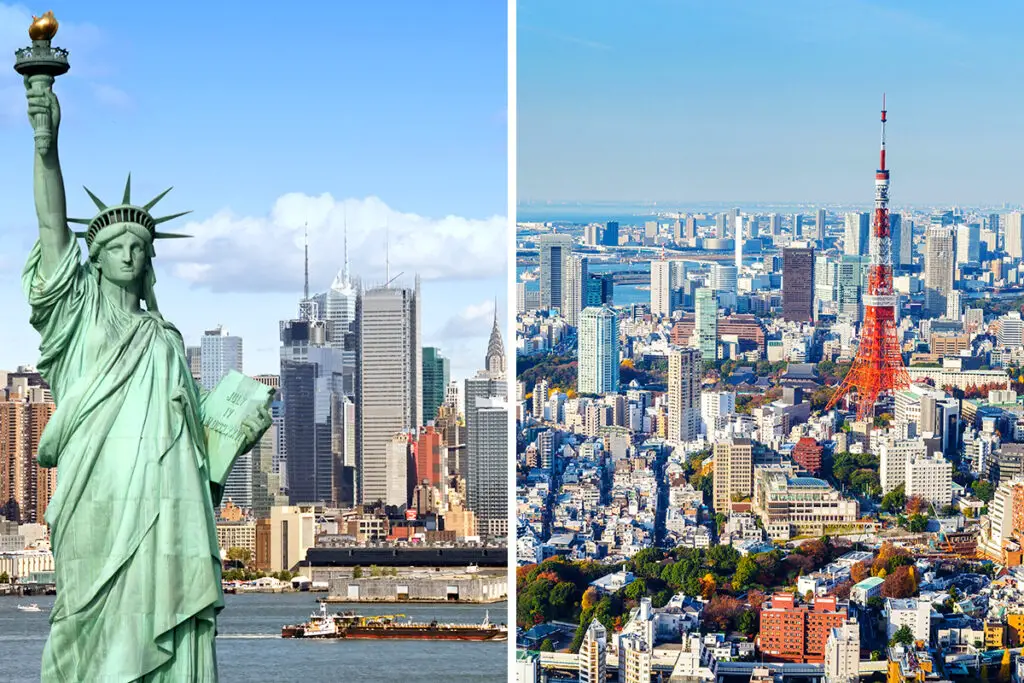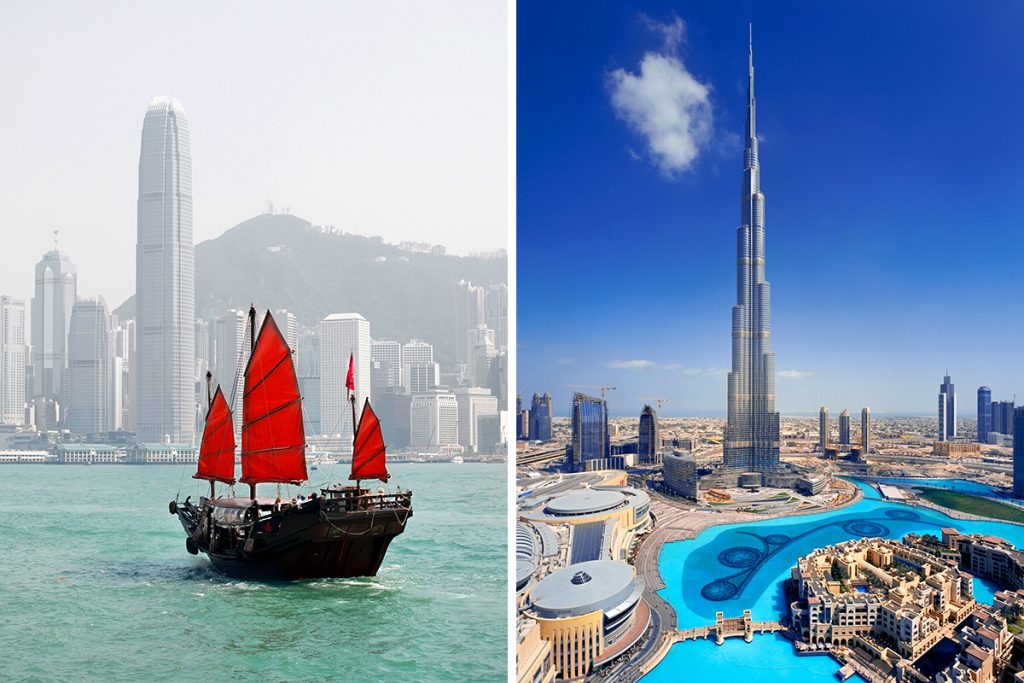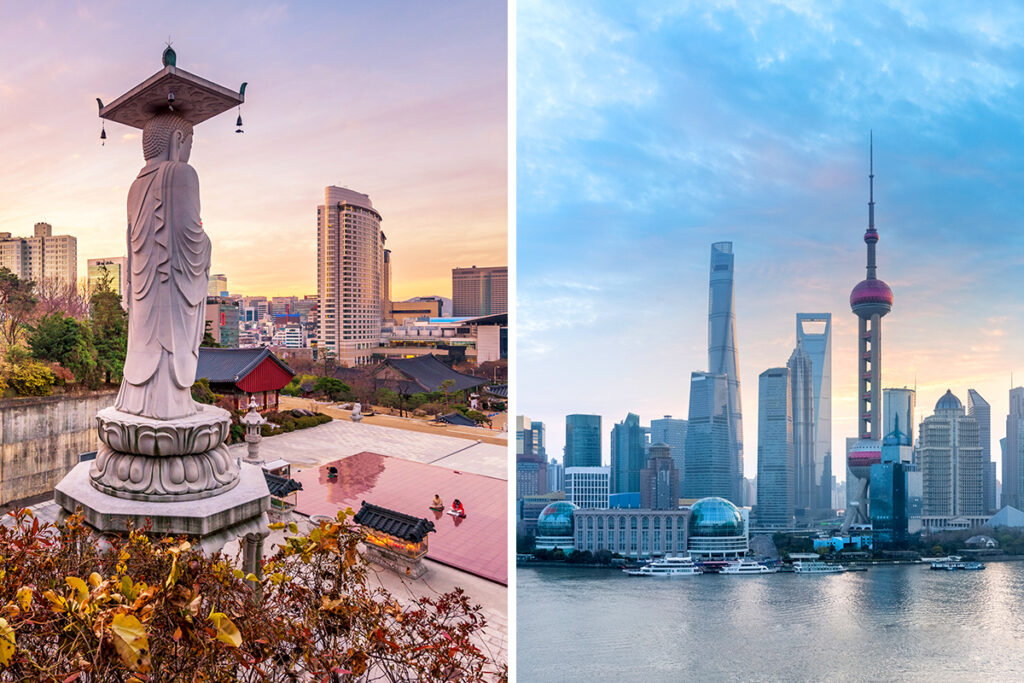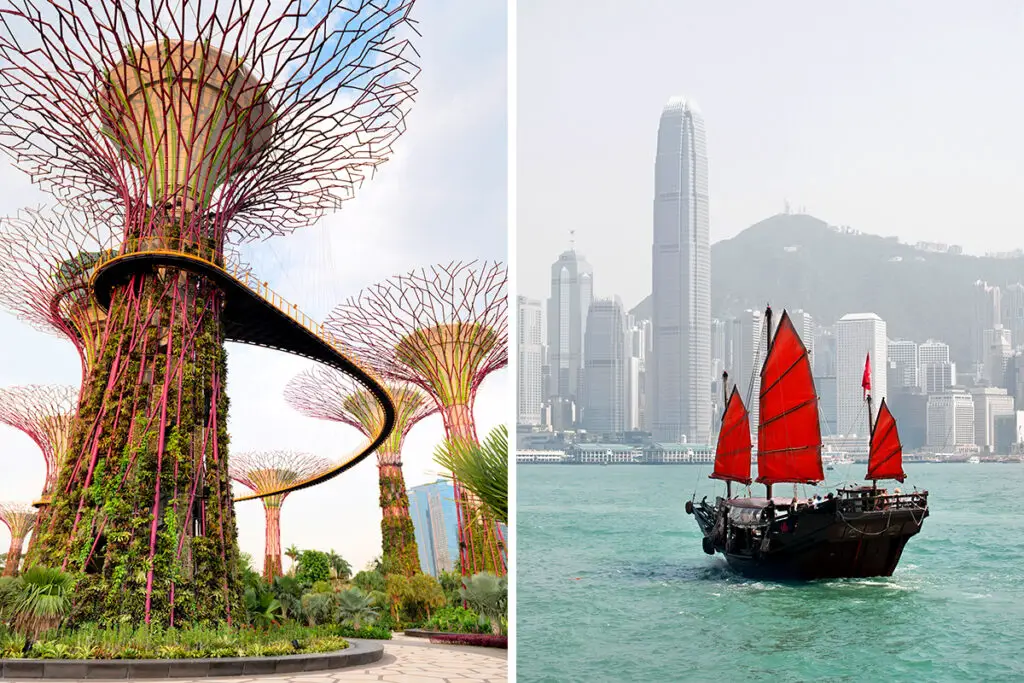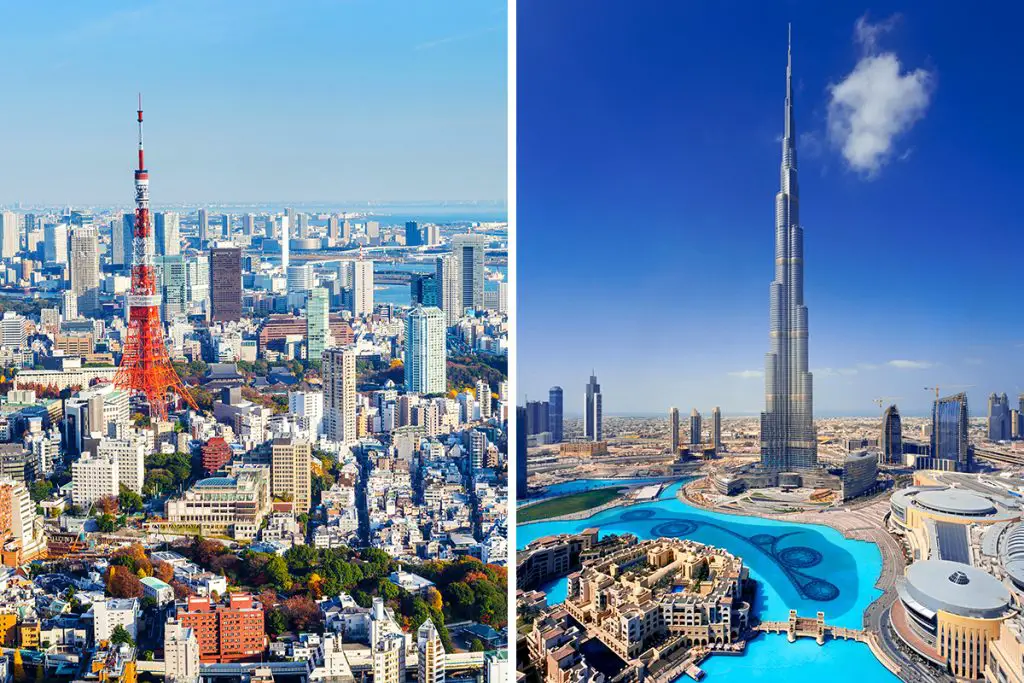So, you’re torn between the lure of Tokyo’s ultra-modern skyline and Beijing’s historic grandeur. Both cities offer unique experiences that make them top contenders for your bucket list. To make your decision even more compelling, each city is a gateway to explore a rich, diverse country beyond its limits. Intrigued? Dive in to discover how these two iconic cities stack up in terms of history, culture, attractions, and more. Your ideal destination awaits!
History & Culture
Embarking on a trip to either Tokyo or Beijing is like stepping into a time machine that can take you both back and forth in history. But what makes each city unique in terms of history and culture? Let’s delve in.
Tokyo, originally known as Edo, started off as a small fishing village. Over time, it evolved into one of the most advanced cities in the world. Its culture is a fascinating blend of the old and the new. You can find serene temples right next to towering skyscrapers, all coexisting in harmony.
The Japanese are known for their deep respect for tradition, even as they lead in technological advancements. You’ll feel this balance wherever you go.
Beijing, the capital of China, has a history that spans over three millennia. The city is like an open-air museum, where each street and building seems to tell a story.
While Tokyo is about harmony, Beijing exudes grandeur. The Chinese have an old saying: “He who has never been to the Great Wall is not a true man.” It’s a nod to the importance of history and accomplishment in the culture. But it’s not all old; the city is also looking ahead, with new architectural marvels and a growing tech scene.
So how do they compare? Tokyo offers a seamless blend of tradition and future, where old temples and modern skyscrapers exist side by side.
In Beijing, you’ll find a more distinct divide between the old and the new, symbolized by ancient landmarks and futuristic architecture. The city invites you to explore its long, intricate history while also showing you glimpses of its ambitions for the future.
In summary, if you’re captivated by a smooth fusion of old and new, Tokyo might be more up your alley. If you’re drawn to a city where ancient history stands tall amid modern aspirations, Beijing could be your ideal destination. Either way, both cities offer a rich tapestry of history and culture that will make your trip unforgettable.
Attractions & Activities
Both Tokyo and Beijing offer a feast for the senses when it comes to attractions and activities. Whether you’re an art enthusiast or a history buff, each city has its fair share of wonders to explore. Let’s dig in to see what each city can offer you.
In Tokyo, one must-visit attraction is the Tokyo Tower, a 333-meter (1,093-foot) tall structure that provides a panoramic view of the city. If you’re a fan of Studio Ghibli, the Studio Ghibli Museum offers an interactive experience into the world of anime.
For a blend of nature and spirituality, you can visit Meiji Shrine, nestled within a 170-acre (69 ha) forest right in the middle of Tokyo’s bustling cityscape. Moreover, Tokyo offers unique experiences like tea ceremonies and calligraphy classes that allow you to immerse yourself in Japanese culture.
Beijing, on the other hand, offers attractions steeped in history and cultural significance. The Forbidden City is a sprawling palace complex that offers a glimpse into the life of Chinese emperors. The Temple of Heaven is another majestic structure, not just for its architecture but also for its historical importance in Chinese cosmology.
If you’re looking for a bit of an outdoor adventure, hiking the Great Wall offers both exercise and breathtaking views. Plus, activities like traditional Peking opera or Tai Chi classes offer a deep dive into Chinese culture.
Tokyo leans more towards modern attractions interwoven with traditional elements. It allows you to experience high-tech advancements while also getting a dose of age-old Japanese traditions.
Beijing focuses more on historical landmarks and offers activities that give you insight into ancient Chinese culture. The city serves as a living museum, with sites that allow you to walk through history.
When it comes to activities, Tokyo provides a more contemporary array, from anime-inspired attractions to cutting-edge technology displays. In contrast, Beijing offers more culturally rooted activities like traditional performances and historical site explorations.
In summary, both cities offer a multitude of attractions and activities, each with its own unique flavor. If you’re looking to blend the future and the past in one trip, Tokyo might be your pick. But if you’re keen to immerse yourself in a journey through ancient history and culture, then Beijing awaits.
Eating, Drinking & Nightlife
Ah, the culinary arts and the joys of the night! Both Tokyo and Beijing have their own unique takes on food, drink, and after-hours excitement. Whether you’re a foodie or someone who enjoys a great night out, you’re in for a treat. Let’s dig into what each city can offer.
Starting with Tokyo, the city is a paradise for sushi lovers and anyone keen to explore Japanese cuisine. From Tsukiji Market’s fresh seafood to luxurious omakase dining experiences, the city offers an array of options for every palate and budget.
The Japanese are serious about their ramen too; you’ll find endless varieties in hole-in-the-wall shops as well as up-scale restaurants.
Beijing’s culinary scene offers a different type of splendor. Peking duck is a must-try, and you can savor this delicacy in numerous establishments, from historic restaurants to modern eateries. Dumplings and hot pots are also popular here, providing a communal dining experience that allows you to connect with local traditions.
When it comes to drinking, Tokyo is renowned for its sake and whiskey. Izakayas, or Japanese pubs, offer a cozy atmosphere where you can enjoy these traditional beverages along with small plates of food. Beijing, however, leans more towards baijiu, a strong Chinese liquor. Tea culture is also prominent, with many teahouses offering traditional Chinese teas in a serene setting.
As for nightlife, Tokyo is all about options. From themed cafes and karaoke bars to high-energy dance clubs, the city provides a variety of entertainment to suit any taste. Beijing’s nightlife has its own allure, with many bars and clubs featuring live music and traditional Chinese performances, giving you a sense of the local culture even during the night.
To summarize, Tokyo and Beijing both offer remarkable culinary scenes yet they differ in taste and style. Drinking options also vary, with Tokyo offering sake and whiskey, while Beijing serves baijiu and tea. When the sun goes down, Tokyo offers a diverse array of entertainment, whereas Beijing provides a more culturally rooted nightlife experience.
Shopping
Retail therapy, anyone? Tokyo and Beijing are both shopping meccas, each with its own unique offerings. Whether you’re hunting for high-end fashion or looking for local crafts, these cities have got you covered.
Tokyo is the land of cutting-edge fashion and tech gadgets. Places like Shibuya and Harajuku are hotspots for the latest trends, where you can find everything from kawaii accessories to designer clothing. Akihabara is the go-to district for electronics and anime merchandise, offering a range of products that are often hard to find elsewhere.
Beijing, on the other hand, excels in traditional crafts and art. The Panjiayuan Antique Market is a treasure trove for those interested in Chinese antiques, ceramics, and calligraphy. Wangfujing Street offers a mix of modern retail stores and traditional shops, providing a variety of shopping experiences in one location.
Tokyo focuses on modern, trendy items, often leading in fashion and technology. It’s the place to go if you’re interested in cutting-edge designs and the latest gadgets. In contrast, Beijing specializes in items with cultural and historical significance. Here, you’ll find more traditional products that reflect the deep-rooted culture of the area.
In conclusion, Tokyo is your destination for modern, trendy shopping, whereas Beijing is the place to go for traditional crafts and antiques. Each city offers a unique shopping experience that reflects its own culture and history, ensuring you’ll bring back more than just souvenirs from your trip.
Accommodation
Finding the right place to stay can make or break your trip. Both Tokyo and Beijing offer a broad range of accommodation options, tailored to various preferences and budgets. Let’s dive into the specifics.
In Tokyo, you can opt for unique lodging experiences like capsule hotels, where each guest has a small, enclosed bed space. These are often economical, costing around $30-$50 per night, and are especially popular among solo travelers. For a more traditional experience, consider staying in a ryokan, a Japanese-style inn complete with tatami mats and communal baths.
Beijing offers its own unique lodging styles. Courtyard houses, or “Siheyuan,” are traditional Beijing homes converted into boutique hotels. These offer an intimate experience, allowing you to immerse yourself in local culture. Prices for these range from $50-$150 per night. High-end international hotel chains are also abundant, particularly in the business districts.
When it comes to luxury, both cities deliver. Tokyo is home to several five-star hotels, such as the Aman Tokyo, located in the financial district, where rooms can go upwards of $1,000 per night. Beijing counters with its opulent hotels like the Rosewood, offering rooms with a view of historic landmarks, also in the $1,000 per night range.
In summary, both Tokyo and Beijing offer a plethora of accommodation options, from budget-friendly to luxurious. Whether you’re keen on experiencing local culture or seeking international standards of luxury, both cities have something to cater to your needs.
Family-Friendliness & Children’s Activities
Traveling with family? Both Tokyo and Beijing have plenty to keep the little ones entertained. From interactive museums to enchanting parks, each city has its unique offerings for family fun.
Tokyo Disneyland and DisneySea are big hits for families, offering a magical experience for kids and adults alike. Ueno Zoo, the oldest zoo in Japan, also offers a fun-filled day with its diverse range of animals, including pandas.
Beijing also has its share of family-friendly attractions. The Beijing Zoo is home to a variety of animals, with the panda exhibit being the highlight. There’s also the Beijing Aquarium, one of the largest inland aquariums in the world, which offers interactive exhibits that are both fun and educational.
When it comes to open spaces, Tokyo has parks like Ueno and Yoyogi, where families can enjoy picnics, paddleboating, and bike rentals. In contrast, Beijing offers grand historical sites like the Summer Palace, which has vast grounds perfect for a family outing, complete with boat rides on Kunming Lake.
In summary, Tokyo leans more towards modern, themed attractions, while Beijing offers more culturally rich experiences. Regardless of your choice, both cities provide a range of activities that can keep the entire family entertained.
Getting There & Getting Around
Getting to and around your destination is a crucial part of any trip. Both Tokyo and Beijing have well-developed transportation systems, but they come with their own quirks and features. Let’s get into the details.
To fly into Tokyo, most travelers use Narita International Airport, located about 60 kilometers (37 miles) from central Tokyo, or Haneda Airport, which is about 20 kilometers (12.4 miles) from the city center. Beijing Capital International Airport serves Beijing and is approximately 32 kilometers (19.8 miles) from downtown.
In Tokyo, the metro system is the backbone for getting around, complemented by extensive bus networks and taxis. In Beijing, the subway is also efficient, and there are abundant taxis and buses.
To sum it up, both Tokyo and Beijing offer multiple ways to get to the city and convenient options for getting around once you’re there. Tokyo tends to be a bit more expensive in terms of public transportation, while Beijing offers a more economical experience. Either way, you’ll find it easy to navigate both cities, making the most of what they have to offer.
Weather
When it comes to vacation planning, weather can be a big deal. Whether you prefer sunny skies or snow-capped mountains will influence your choice between Tokyo and Beijing. So, let’s talk specifics.
Tokyo experiences a humid subtropical climate with four distinct seasons. Summers, from June to August, can get pretty hot and humid, with temperatures reaching up to 90°F (32°C). Winters, from December to February, are mild, rarely dropping below 35°F (2°C).
The cherry blossom season in late March to early April is a fantastic time to visit, offering mild and pleasant weather.
On the other hand, Beijing experiences a monsoon-influenced continental climate. Summers here, from June to August, are hot and humid, similar to Tokyo, with highs of around 88°F (31°C). Winters are colder, running from November to February, and can get down to 14°F (-10°C).
The most comfortable months to visit are May and September when the city experiences mild temperatures and less rainfall.
Both cities have their rainfall patterns, with Tokyo experiencing its wet season in June and July and Beijing getting most of its rain in July and August. If you prefer drier conditions, Tokyo’s winter and Beijing’s spring and fall might be more to your liking.
In summary, Tokyo offers a milder climate throughout the year, with humid summers and mild winters. Beijing presents a more dramatic range, with hot summers and cold winters. Your choice might depend on what kind of weather you find most comfortable or what experiences you want to have.
Safety
Safety is a top concern for any traveler. Both Tokyo and Beijing have relatively low crime rates compared to other major global cities, but there are some nuances worth exploring.
Tokyo is often cited as one of the safest cities in the world. Violent crime is exceptionally rare, and petty crime like pickpocketing is not common but could occur in crowded areas like Shibuya Crossing. The police are helpful and trustworthy, often going out of their way to assist foreigners.
Beijing is also generally safe, with low levels of violent crime. However, petty crime such as pickpocketing can occur, particularly in crowded tourist areas like the Forbidden City or public transport. Local authorities are stringent, and surveillance is common.
On the topic of natural disasters, Tokyo is prone to earthquakes, while Beijing experiences occasional bouts of heavy air pollution. These are evergreen concerns but are well-managed by local authorities in both cities.
To sum up, both Tokyo and Beijing are generally safe cities to visit. While Tokyo slightly edges out in terms of overall safety, Beijing is not far behind. Both cities have their unique risks, but these are minimal and shouldn’t be a significant concern for travelers.
Cost
How much you’ll spend is an essential factor when choosing between Tokyo and Beijing. Both cities can accommodate various budgets, but there are distinct differences in the cost of food, lodging, and transportation.
In Tokyo, a meal at an average restaurant can cost around 1,000 to 6,000 yen ($7 to $40), while a subway ticket costs around 170 to 250 yen ($1 to $2). Accommodation varies widely, from budget options at $50 per night to luxury hotels exceeding $1,000 per night.
In Beijing, a meal at a mid-range restaurant will cost you around 40 to 200 yuan ($6 to $28). Subway rides are cheaper, with fares starting at 3 yuan ($0.50). Lodging options can range from budget hotels at $30 per night to high-end hotels costing upwards of $300 per night.
In general, Tokyo is the more expensive city, especially when it comes to dining and accommodation. However, both cities offer a range of options to fit any budget.
To summarize, if cost is a significant factor for you, Beijing might be a more budget-friendly option. But if you’re looking for a more luxurious experience and are willing to pay for it, Tokyo could be your ideal destination.
Which Is Better – Tokyo or Beijing?
So you’ve waded through the specifics, from the nuances of history and culture to the nitty-gritty details of safety and cost. Now comes the million-dollar question: Tokyo or Beijing, which city should get your passport stamp?
When it comes to history and culture, Tokyo offers a fascinating blend of the old and the new, from ancient shrines to towering skyscrapers. Beijing, however, presents a more traditional picture, allowing you to step back into the past and explore China’s rich cultural heritage.
If historical depth is what you’re after, Beijing might be your go-to, while Tokyo offers a unique contemporary vibe alongside its traditional roots.
Attractions and activities differ sharply between the two. Tokyo is a bustling metropolis with something for everyone, from anime lovers to those who are keen on technology and robotics. Beijing leans more towards historical attractions like the Great Wall and the Forbidden City, making it a dream destination for history buffs.
When it comes to beaches, neither city offers a quintessential beach experience, but each has its own unique waterfront areas worth exploring. For eating, drinking, and nightlife, Tokyo takes the lead with its vibrant street food scenes and top-notch bars. Beijing, while not lacking in culinary wonders, focuses more on traditional Chinese dishes and local beverages.
Shopping experiences are varied in both cities. Tokyo is a paradise for technology enthusiasts and fashionistas, whereas Beijing offers unique souvenirs and local crafts that you won’t find anywhere else. Accommodation in Tokyo tends to be pricier but offers more variety, from capsule hotels to luxurious suites. Beijing offers budget-friendly options without sacrificing quality.
Family-friendliness and children’s activities are abundant in both cities, but Tokyo’s innovative technology can keep kids (and adults!) engaged for days. Getting there and around is convenient in both cities, with extensive public transport networks and international airports. However, Tokyo’s infrastructure is a bit more user-friendly for English speakers.
When we consider the weather, Tokyo is milder year-round, making it a comfortable choice for most travelers, whereas Beijing’s extreme temperatures offer a more seasonal experience.
So, when should you pick Tokyo over Beijing? If you crave modernity, seek a variety of activities, and don’t mind spending a bit more, Tokyo is your city. Choose Beijing if you’re a history enthusiast looking for a budget-friendly option with a focus on traditional culture. Each city offers a unique experience, and your personal preferences will ultimately guide your choice.


